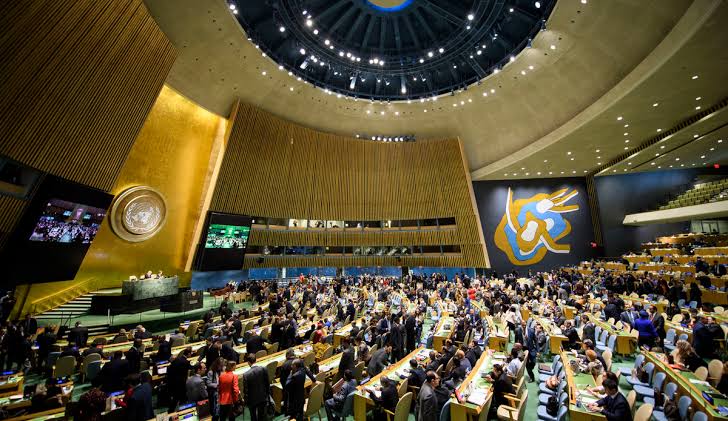The United Nations General Assembly is poised to address the multifaceted impact of artificial intelligence (AI) in an upcoming session, with a resolution crafted to outline the potential benefits and challenges of this transformative technology. Scheduled for Thursday deliberations, the resolution, co-sponsored by numerous nations, aims to establish international standards governing AI while emphasizing the imperative of promoting safety, security, and trustworthiness in AI systems.
Excluding military AI from its purview, the resolution underscores the positive potential of AI and advocates for measures to bridge digital disparities both globally and within nations. Proposed by the United States, this pioneering resolution represents a pivotal step towards fostering digital transformation and ensuring equitable AI access in alignment with the UN’s Sustainable Development Goals, with a vision set for 2030.
US Ambassador to the UN, Linda Thomas-Greenfield, underscores the urgency of collective action as AI technologies advance rapidly. However, analyst Richard Gowan from the International Crisis Group suggests that the focus on development may serve as a strategic maneuver by the US to rally support from less affluent nations.
While recognizing the threats associated with AI misuse, the resolution addresses concerns about human rights violations, biases, and risks to personal data protection. It urges member states to abstain from utilizing AI systems that contravene international human rights laws or jeopardize human rights fulfillment.
UN Secretary-General Antonio Guterres has prioritized AI regulation, advocating for the establishment of a UN entity akin to the International Atomic Energy Agency (IAEA). He highlights the perils of disinformation and underscores the importance of mitigating biases inherent in technologies primarily developed by men.
Amidst a competitive landscape among UN member states such as the United States, China, and South Korea vying for leadership in AI regulation, the White House has introduced regulations to affirm US primacy in this domain. President Joe Biden stresses the imperative of governing AI technology comprehensively to ensure ethical and responsible innovation.
In summation, the UN’s forthcoming deliberation on AI governance signifies a crucial milestone in shaping the global trajectory of AI development, underscoring the imperative of international collaboration and ethical considerations in harnessing the potential of this groundbreaking technology.


